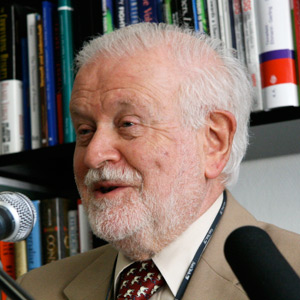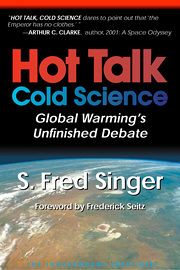The world is fascinated by the November 12 climate agreement between President Obama and Chinese President Xi. Has China finally decided to “fight climate change”? My personal opinion is that China is taking advantage of White House science ignorance and anxiety about future climate change, hoping thereby to gain commercial and strategic advantages against the United States.
The bilateral US-China Climate Agreement, inked in Beijing on Nov 12, makes virtually no demands on the Chinese. It simply states that at or about the year 2030, they will start to reduce their emissions of CO2; in the meantime, they can emit as much as they want. So they have 15 more years to add more coal-fired power plants to any extent they wish. It is very likely that by 2030, China’s population will have stopped growing and a large part will be living in urban apartment blocks, having bought all of the gadgets they need: TVs, refrigerators, computers, etc.—and that their demand for electric power will have saturated.
On the other hand, the US commitment is rather severe: an actual reduction of 26-28% in CO2 emissions by 2025, just 10 years away. This goal can only be achieved by the substitution of natural gas for coal-fired power plants, and the eventual replacement of much of natural gas with unreliable and uneconomic “renewables,” such as wind and solar. As Obama promised in 2008, electricity costs will “sky-rocket.”
Indeed, this seems to be the US plan—as spelled out by the EPA, under the direction of the White House. All the China agreement really does is to make Obama look good to his Green constituency, besides providing a convenient “club” to use for his “war on coal.” The expected effect on the global climate is zero, zilch, nada.
From the Chinese point of view, this is an ideal arrangement, and has both commercial and strategic benefits. It makes energy more expensive in the United States and Europe; it cripples the industrial base of the Western World. And hand-in-hand with economic strength goes military strength.
Climate Science is Still Unsettled
In 1988, the United Nations set up the IPCC (Inter-governmental Panel on Climate Change) to supply the scientific rationale for a global climate treaty, agreed-to at the 1992 Earth Summit in Rio de Janeiro. The IPCC is supposed to survey published scientific results impartially, but instead it has ignored research papers that contradict the conclusions of its five Assessment Reports—of 1990, 1996, 2001, 2007, and 2013-14.
For evidence of human influence on climate, the IPCC relies on a supposed agreement between climate models and observations. In fact, the models cannot reproduce the observations and therefore fail to support the IPCC conclusion. This disagreement has now become apparent to many scientists around the world, who have set up a competing, largely self-supported study group called NIPCC (Non-governmental International Panel on Climate Change), independent of the UN and of any government.
Contrary to the IPCC, NIPCC finds that natural influences rule the climate and human influences are relatively insignificant. One can give many examples where models and observations disagree. For instance, IPCC admits that there has been no warming observed in the last 15-18 years, but fails to point out that this result disagrees with the results of every climate model.
IPCC is also dismissive of scientific research that cosmic rays from outer space can and do change the climate. The full story is that the cosmic-ray intensity is modulated by solar activity. Ultimately therefore, solar activity affects cosmic rays, which in turn change the earth’s cloud cover and thereby affect climate.
One could cite many other examples of credible scientific work ignored by the IPCC. It has been the aim of the NIPCC to restore the balance of evidence necessary to permit informed decisions on policy. Every IPCC report’s Summary for Policy Makers (SPM) is approved line-by-line by the nearly 200 participating national delegations. But these delegates are not scientists; they are working with a draft SPM carefully compiled by a handful of politically oriented scientists who “cherry-pick” factoids from the IPCC Report itself and ignore contrary evidence. Unlike the full Report, this draft SPM does not acknowledge the existence of scientific uncertainties. It is on the basis of such an SPM that politicians agreed to adopt the costly, ineffective 1997 Kyoto Protocol (which expired in 2012) and other policies that affect energy use—and therefore have tremendous economic consequences.
Right now, China is beginning to experiment with “cap-and-trade” schemes within three urban areas. The US Congress in 2009 refused to approve such a C&T policy; yet President Obama will attempt to achieve a similar result through regulation—without the Congress. Europeans have tried it, but it has been an economic disaster. Australia had instituted a carbon tax as an alternative, but has now abandoned it. Only the State of California is proceeding with such a scheme, but is using it primarily to raise revenues, like a tax; it will have no detectible effect on global climate.
A cap and trade scheme in China may have some value in improving energy efficiency—in reducing the amount of energy required to produce electricity. That could be a useful objective. But it should not be considered as climate policy.
The Inscrutable Chinese
I can’t quite figure out whether or not the Chinese government really believes in anthropogenic (human-caused) global warming (AGW); it may all be pretense—just a cynical charade, hoping to mislead the West into adopting drastic reductions of CO2 emissions. There seems to be internal debate among scientists within the Chinese Academy of Sciences. Going along with IPCC climate fears can be quite beneficial for individual scientists: International conferences in Bali, Cancun, Lima, and next year in Paris just sound very intriguing; plus more money and perks at home. Further, some may actually become convinced that their work is “saving the planet” from the imagined ravages of a slightly warmer climate.
On the other hand, the Chinese Academy has translated some of the volumes of the NIPCC, and organized a workshop in Beijing in June 2013 to discuss the NIPCC conclusions, which are very critical of the UN-IPCC claims of AGW.
The latest NIPCC effort is a two-volume publication, called Climate Change Reconsidered-II, Physical Science (2013) and Biological Impacts (2014)—which disagrees strongly with the corresponding IPCC Assessment Reports (2013 and 2014). There is no doubt that there is a constituency within the China science establishment (and perhaps also within their government) that supports NIPCC. An indication is a (hard-bound) volume (in Chinese), co-authored by two Chinese members of the Academy, a member of the French Academy, and myself. Its title is: “Nature-not human activity-rules the climate.”
Will We Get Another Kyoto Protocol?
Many in the White House think the agreement with China is an important step in reaching a global treaty at the forthcoming (Dec 2015) Paris meeting. I wouldn’t be so sure. A treaty would have to be confirmed by two-thirds of the US Senate, and there is little chance of that. Even back in July 1997, during the Clinton-Gore White House, the Senate voted unanimously for the bi-partisan Byrd-Hagel Resolution against a global protocol to control CO2 emissions. Indeed, Clinton-Gore never submitted Kyoto to the Senate for ratification.
Obama will likely try to achieve his CO2 goal by executive orders and administrative measures. He will find a way, as he has put it, to “skin the cat.” Whether his war on coal will succeed in circumventing a hostile Congress is another question. The courts will also have a lot to say on this, including the Supreme Court. When it comes to a global agreement, many nations may vote against any Kyoto-like protocol, including India, Australia, and likely also Canada and Japan.
The next few months are going to be very interesting.
A Quick Word about Carbon Dioxide
CO2 is an odorless, non-toxic, natural constituent of the Earth’s atmosphere. As the basic food for all plants, it is absolutely essential for maintaining life on our planet. CO2 should not be called a “pollutant.” In the geological past, its level has been ten times higher or more than its present value; in fact, our major food crops developed when CO2 levels were about five times higher. China is now the world’s largest emitter of CO2 and thereby making an important contribution to increasing agricultural yields—at a time when much of the global population is still hungry. The world should be grateful to China.









